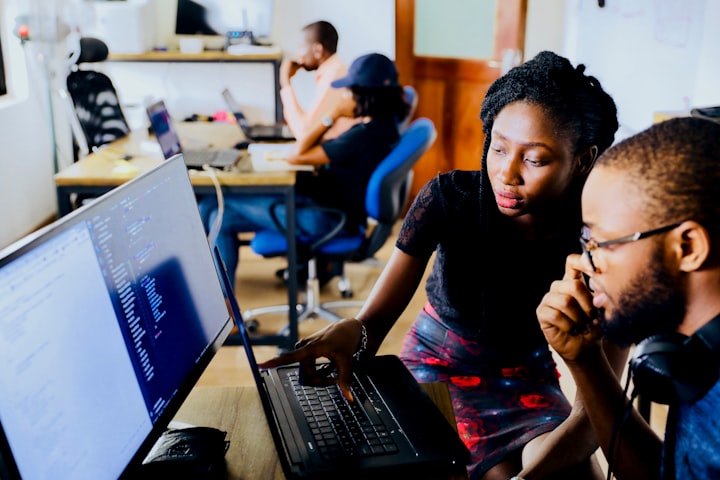The Transformative Power of Education: Nurturing Minds, Building Futures
Education is the Most Powerful weapon in the world

Education is a fundamental pillar of human development, serving as a catalyst for personal growth, societal progress, and global advancement. Its transformative power extends far beyond the confines of classrooms, shaping individuals, communities, and nations. In this article, we delve into the multifaceted dimensions of education, exploring its pivotal role in fostering intellectual, emotional, and social development.
Foundations of Education:
At its core, education is the process of acquiring knowledge, skills, values, and attitudes that contribute to an individual’s holistic development. The foundations of education are laid in early childhood, when children begin to explore the world around them, learning fundamental concepts that serve as building blocks for future academic and personal achievements.
Formal education systems, comprising primary, secondary, and tertiary levels, play a crucial role in imparting structured knowledge. However, education is not confined to traditional institutions. Informal education, which encompasses life experiences, cultural influences, and self-directed learning, also contributes significantly to an individual’s growth.
Empowerment of Knowledge:
Knowledge is a potent tool that empowers individuals to navigate the complexities of life. A well-rounded education equips people with the skills to analyze information critically, make informed decisions, and adapt to a rapidly changing world. Beyond the acquisition of facts, education nurtures critical thinking, problem-solving abilities, and creativity—qualities essential for personal success and societal progress.
In a globalized era, where information is abundant, education serves as a means to sift through the noise and discern credible sources. Digital literacy has become an integral component of education, enabling individuals to harness the vast resources available online responsibly. The empowerment of knowledge is not only a personal asset but also a catalyst for innovation, economic growth, and the advancement of society.
Socioeconomic Impact:
Education is a powerful driver of socioeconomic development. Nations with a well-educated populace tend to experience higher levels of economic prosperity, lower unemployment rates, and increased innovation. Education lays the groundwork for a skilled workforce and fosters a competitive edge in the global marketplace.
Investments in education yield long-term benefits by breaking the cycle of poverty. When individuals have access to quality education, they are better positioned to secure stable employment, elevate their standard of living, and contribute to the overall welfare of their communities. Education empowers marginalized groups, promoting inclusivity and reducing social disparities.
Beyond Economic Utility: Personal Development and Well-Being
While the economic benefits of education are undeniable, its impact extends far beyond financial considerations. Education is a vehicle for personal development, nurturing emotional intelligence, resilience, and a sense of purpose. The cultivation of social skills within educational settings fosters empathy, teamwork, and effective communication—skills essential for meaningful relationships and community engagement.
Education is also a key factor in promoting mental health and well-being. It equips individuals with coping mechanisms, stress management techniques, and the ability to navigate life's challenges. The pursuit of knowledge itself becomes a source of fulfillment, instilling a lifelong love of learning.
Global Citizenship: Fostering Understanding and Collaboration
In an interconnected world, education plays a pivotal role in shaping global citizens. Exposure to diverse perspectives, cultures, and worldviews fosters an appreciation for diversity and promotes intercultural understanding. Education instills a sense of responsibility towards global issues, encouraging individuals to become active contributors to a more sustainable and equitable world.
Global challenges, such as climate change, poverty, and conflict, require collaborative solutions. Education prepares individuals to engage in meaningful dialogue, seek common ground, and work towards shared goals. By fostering a global perspective, education becomes a powerful force for building bridges and breaking down barriers between people and nations.
Challenges and Opportunities in Education:
Despite their transformative potential, education systems face numerous challenges. Disparities in access to quality education persist, hindering the full realization of its benefits. Socioeconomic factors, gender inequalities, and geopolitical conflicts can impede educational opportunities for millions of individuals worldwide.
However, advancements in technology present opportunities to address these challenges. Online learning platforms, digital resources, and educational innovations have the potential to democratize access to education, reaching remote areas and underserved populations. Additionally, a shift towards inclusive and diverse curricula can better reflect the realities of a globalized and interconnected world.
Conclusion:
Education stands as a cornerstone of human progress, enriching lives and shaping the future. Its transformative power extends beyond the individual, influencing communities, societies, and the world at large. As we navigate the complexities of the 21st century, investing in education is not just a pragmatic choice but a moral imperative. By fostering a culture of lifelong learning, embracing diversity, and addressing challenges with innovation, we can unlock the full potential of education, building a brighter and more inclusive future for generations to come.
About the Creator
prasanna sundar
Fitness is a holistic pursuit, combining physical exercise, balanced nutrition, and mental well-being. Regular exercise, a nutritious diet, and mindfulness practices contribute to overall health.






Comments (1)
Awesome 🥰